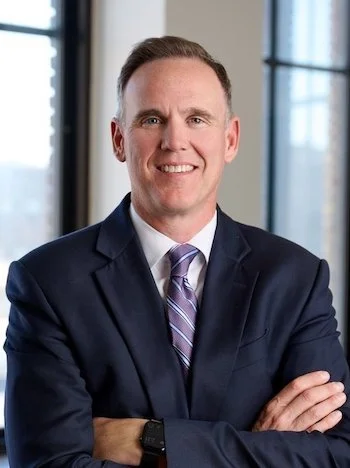Federal Healthcare Fraud Lawyer

Federal Healthcare Fraud Lawyer

Federal Healthcare Fraud Attorney
The healthcare ecosystem in the United States is vast and highly regulated, involving hospital networks, pharmacies, insurance companies, patients, and providers. When an individual or organization is accused of federal healthcare fraud, the consequences can be devastating professionally, financially, and legally. If you’re under investigation, an experienced federal healthcare fraud lawyer from SBBL Law can help you mount a comprehensive defense.
At SBBL Law, our criminal defense attorneys are highly experienced in navigating complex federal cases involving Medicare, Medicaid, TRICARE, and other government-funded programs. Additionally, our team is well-versed in billing and coding issues, internal investigations, and healthcare fraud allegations involving private insurance companies such as Blue Cross Blue Shield and others.
Federal prosecution isn’t limited to public healthcare claims. Fraud involving private insurers may also trigger federal charges when it impacts interstate commerce.
Our team includes former federal prosecutors and agents from the U.S. Attorney’s Office and the FBI, providing us with unique insight into how the federal government builds and prosecutes healthcare fraud cases.

Understanding Federal Healthcare Fraud
Federal healthcare fraud typically involves allegations of intentional deception of a healthcare program—whether public or private— to gain unauthorized financial benefits. These cases often fall under statutes such as 18 U.S.C. § 1347 (Health Care Fraud), the False Claims Act (31 U.S.C. §§ 3729-3733), and the Anti-Kickback Statute (42 U.S.C. § 1320a-7b(b)).
Depending on the case, additional laws, such as the Stark Law (physician self-referral law) and the Controlled Substances Act, may also come into play. While many federal fraud cases originate from Medicare, Medicaid, or TRICARE claims, cases involving private insurers may also be prosecuted federally, especially when the alleged fraud affects interstate commerce.
The following acts are considered serious federal offenses, often involving years of documentation, high financial impact, and coordination across multiple jurisdictions and agencies. Some of the most common forms of federal healthcare fraud include:
- Upcoding: Billing for a more expensive service than what was actually performed to increase reimbursement
- Kickbacks: Offering or accepting money or other incentives for patient referrals, including those that involve Medicare or Medicaid funds
- Billing for Services Not Rendered: Submitting claims for procedures, equipment, or consultations that were never provided
- Phantom Billing: Generating fabricated patient visits or services that never occurred, often accompanied by falsified records
- Unbundling: Charging separately for services that are typically grouped together at a lower “bundled” reimbursement rate, leading to overpayment
- Excessive or Unnecessary Services: Ordering unnecessary tests, prescriptions, or procedures solely for profit
- False Diagnoses: Providing fraudulent diagnoses to justify medically unnecessary procedures or medications
- Prescription Fraud and Pill Mills: Issuing prescriptions for controlled substances without medical necessity, often for financial gain or in exchange for kickback
Who Investigates Federal Healthcare Fraud?
Federal healthcare fraud cases are primarily investigated by the following agencies:
- The Federal Bureau of Investigation (FBI)
- The Department of Health and Human Services, Office of Inspector General (HHS-OIG)
- The Department of Justice (DOJ)
- The Centers for Medicare & Medicaid Services (CMS)
These agencies frequently collaborate in task forces or strike forces that target specific regions or fraud trends. Investigations may begin with audits, whistleblower tips, or data analytics that flag irregular billing patterns. Federal enforcement authorities might scrutinize insurance schemes that impact both public and private sectors, especially when they generate substantial financial losses or operate across multiple states.
Federal Healthcare Fraud Enforcement
Healthcare fraud enforcement is a major focus for the U.S. Department of Justice. For example, in December of 2024, the DOJ released reports stating that they had achieved more than $3.4 billion in recoveries from healthcare fraud cases during fiscal year 2023. The Department also obtained civil settlements and judgments under the False Claims Act that surpassed $1.8 billion. The Department of Justice started 802 criminal healthcare fraud investigations while bringing charges in 346 cases with 530 defendants.
Potential Consequences of a Federal Conviction
Federal sentencing guidelines consider the total financial loss, the number of victims, and whether the defendant was a leader or organizer of the scheme. Civil penalties may also be imposed under the False Claims Act, where each false claim can result in thousands of dollars in fines, even without a criminal conviction. The penalties for federal healthcare fraud are steep and life-altering. A conviction can lead to:
- Fines reaching hundreds of thousands or even millions of dollars
- Restitution payments to the government or affected parties, such as private insurance companies
- Prison sentences of up to 10 years per offense or more if patient harm is involved
- Mandatory exclusion from participation in Medicare and Medicaid programs
- Loss or suspension of professional licenses, including medical licenses
- Damage to reputation and business relationships that may be irreversible
Defense Strategies in Federal Healthcare Fraud Cases
At SBBL Law, we understand that no two healthcare fraud cases are alike. We take a customized approach to defense, which may include strategies such as:
- Lack of Intent: Arguing that billing errors were mistakes and not part of a scheme to defraud. For example, a provider who mistakenly selected the wrong billing code or whose staff did not fully understand a particular coding rule may not be criminally liable.
- Good Faith Reliance: Demonstrating that the accused relied on the guidance of billing professionals, accountants, or legal counsel.
- Challenging the Evidence: Scrutinizing the accuracy, authenticity, and interpretation of billing records, emails, and financial data. We evaluate whether the prosecution’s narrative is supported by credible data.
- Procedural Defenses: Filing motions to suppress unlawfully obtained evidence or dismiss charges based on insufficient evidence.
- Standard of Care Testimony: Calling upon expert witnesses to show that the defendant’s conduct aligned with industry norms and that coding practices were reasonable.
- Constitutional Violations: Arguing that the defendant’s rights were violated during investigation, search, or interrogation. This can include filing motions to suppress search warrants or statements made by the defendant.
- Negotiated Resolution: In some cases, a strategic plea bargain may minimize exposure to incarceration or reduce fines. These deals may also allow professionals to preserve their licenses or avoid program exclusion. Providing information to the government that is useful in the prosecution of others or in recovering funds can also help improve the outcome for the defendant.
We will assess the specifics of your case to determine which defenses apply and begin building your case immediately.


Other Practice Specialties
What to Expect During the Federal Process
As dealing with charges of healthcare fraud can be overwhelming and complex, it can be informative to understand what to expect during the defense process. Whether your healthcare fraud charges are at the state or federal level will have a considerable impact on how the overall process may look. Generally, you can expect the following:
- Initial Case Review: During an initial consultation, you can meet your healthcare fraud defense attorney to discuss your case and the charges involved. The attorney will review critical documentation, such as correspondence between staff, patient documents, and billing files.
- Evidence Collection: Based on your side of the story, an experienced federal criminal defense lawyer will collect evidence—such as bills, emails and texts, statements from witnesses, and other documentation to support your argument. Experts in accounting, forensic analysis, and healthcare may be consulted to provide insight into accusations and to interpret evidence against you.
- Target Letter or Subpoena: Many cases begin with a letter from the DOJ informing you that you are under investigation or with subpoenas requesting records and testimony. Your attorney will discuss how best to respond to these while preserving your rights.
- Grand Jury Proceedings: A grand jury reviews evidence to determine whether there is probable cause to issue an indictment. Witness testimony and document subpoenas are common.
- Indictment and Arrest: If indicted, you may be formally arrested and required to appear before a federal magistrate for arraignment.
- Pretrial Motions: Your defense attorney may challenge the evidence, seek dismissal of charges, or move to suppress unlawfully obtained information.
- Trial Preparation: Both sides prepare for trial by exchanging discovery materials and preparing witnesses and arguments.
- Trial or Plea Deal: Depending on the case, your lawyer may recommend proceeding to trial or negotiating a plea deal for reduced charges.
- Sentencing: If convicted, federal sentencing follows strict guidelines but allows for arguments based on mitigating factors.
- Appeals: Post-conviction, your attorney may pursue appeals based on procedural errors, ineffective counsel, or constitutional violations.
Many healthcare fraud cases also involve parallel civil and criminal proceedings. For example, a healthcare provider may face a civil False Claims Act lawsuit in addition to a criminal indictment. Navigating both simultaneously requires a sophisticated legal strategy to avoid self-incrimination while preserving the ability to mount a defense.
Why Work with a Healthcare Fraud Defense Attorney from SBBL Law
Our firm is uniquely qualified to defend federal healthcare fraud cases. With attorneys who have worked inside federal agencies, including the DOJ and FBI, we understand how prosecutors think and how agents operate. We conduct thorough independent investigations, consult with industry experts, and develop defense strategies that stand up in court.
At SBBL Law, we don’t take a one-size-fits-all approach. Whether you’re a physician, billing specialist, administrator, or business owner, we tailor our representation to the specific facts of your case and your goals.
FAQs
What Is Considered Federal Healthcare Fraud?
Federal healthcare fraud takes place when an individual intentionally deceives healthcare systems, including Medicare, Medicaid, or private insurers, to acquire unlawful payments or benefits. Typical instances of healthcare fraud consist of submitting claims for nonexistent services, altering medical documents, exchanging kickbacks for patient referrals, and inflating procedure billing amounts. The FBI and the Department of Health and Human Services (HHS), as well as other federal agencies, investigate these crimes because they involve federal funding and interstate activity.
What Are the Penalties for Federal Healthcare Fraud?
The federal government imposes significant penalties for healthcare fraud offenses. A guilty verdict in federal healthcare fraud cases can result in large financial penalties and forced restitution payments, along with exclusion from Medicare and Medicaid programs and federal imprisonment for multiple years. Prison time in a federal healthcare fraud case depends on the sentencing guidelines, which are driven by the amount of financial loss in the alleged scheme to defraud. The legal penalties become much more severe when patient harm or substantial financial losses result from healthcare fraud. Defendants risk losing their professional licenses and suffering reputation damage, which could permanently end their careers.
Who Investigates Federal Healthcare Fraud Cases?
Federal healthcare fraud investigations are typically handled by agencies such as the FBI, HHS, the Office of Inspector General (OIG), and the DOJ. These agencies often work together with the U.S. Attorney’s Office in the location where the issues occurred and use methods like audits, undercover operations, and subpoenaed documents to build cases. Grand juries review federal charging decisions in secret, making early legal representation essential upon first contact with a healthcare fraud investigator.
Can I Avoid Jail Time for Federal Healthcare Fraud Charges?
It may be possible to avoid jail time, depending on the strength of the evidence, your role in the alleged scheme, and your attorney’s ability to negotiate. Options may include plea agreements, restitution payments, or reduced charges. In some cases, demonstrating a lack of intent or cooperating with investigators can lead to dismissed charges, acquittal, or alternatives to incarceration. Contact a federal healthcare fraud lawyer to protect yourself against harsh legal repercussions.

Federal Healthcare Fraud Lawyer Reviews
★★★★★
“Matt and Mikayla were outstanding to work with. Professional, timely, communicative and helped me every step of the way thru the process! I would recommend them and their firm to anyone who is looking for assistance!” – Nathan Weisenburger
★★★★★
“After searching around Michigan for a good dependable lawyer, I was recommended Heath Lynch from another lawyer. That was the best decision I have ever made by deciding to work with him and his law firm. Communication was great, he was very understanding, and very passionate about what he does. He showed nothing but compassion the entire case. I would recommend him to anybody that is looking for a federal lawyer in the state of Michigan!!!” – Bri Case
★★★★★
“Michael Bartish is a first rate attorney who walked me through my legal issues with both empathy professionalism. His legal advice was spot on and honest. He asked me to trust his experience and guidance to achieve an optimal result for myself and I am glad I did!! I highly recommend Michael and would not hesitate to work with him again.” – Joe VandenBosch


Take Control of Your Defense Today
If you’re facing federal healthcare fraud charges or believe you’re under investigation, don’t wait. Federal prosecutors are often months or years into building their case by the time you hear from them.
Contact SBBL Law today for a confidential consultation. We’re ready to protect your rights, your license, and your livelihood at every stage of the process.
Where We Practice
Our criminal lawyers represent clients in nationwide federal criminal cases and Title IX investigations, and we regularly appear in courts throughout Michigan:
- U.S. District Court for the Western District of Michigan (federal court in Grand Rapids, Kalamazoo, Lansing, Marquette)
- U.S. District Court for the Eastern District of Michigan (federal court in Detroit, Ann Arbor, Bay City, Flint, Port Huron)
- Kent County (Greater Grand Rapids, Walker, Wyoming, Kentwood, Grandville)
- Newaygo County (White Cloud)
- Ottawa County (Hudsonville, Holland, Grand Haven)
- Allegan County
- Barry County (Hastings)
- Muskegon County
- Oceana County (Hart)
- Mecosta County (Big Rapids)
- Ionia County
- Montcalm County (Stanton)
- Clinton County (St. Johns)
- Gratiot County (Ithaca)
- Eaton County (Charlotte)
- Ingham County (Lansing, East Lansing, Mason)
- Jackson County
- Calhoun County (Battle Creek)
- Kalamazoo County
- Van Buren County (Paw Paw, South Haven)
- Mason County (Ludington)
- Lake County (Baldwin)
- Osceola County
- Berrien County (St. Joseph)
- Washtenaw County (Ypsilanti, Ann Arbor)
- and elsewhere throughout Michigan.
If you or someone you know is looking for a criminal defense attorney, call now for a free consultation (616) 458-5500 or (231) 924-8700 or connect with us online.
Kalamazoo
TYPES OF CASES
- White Collar Crimes
- Tax Crimes
- Other Financial Crimes
- Environmental Crimes
Allegan
TYPES OF CASES
- Domestic Violence
- Violent Felonies
- Firearms Offenses
- Major Cases
- Murder-for-Hire
Barry
TYPES OF CASES
- White Collar Crimes
- Tax Crimes
- Other Financial Crimes
- Environmental Crimes
Lona
TYPES OF CASES
- Domestic Violence
- Violent Felonies
- Firearms Offenses
- Major Cases
- Murder-for-Hire
Kent
TYPES OF CASES
- White Collar Crimes
- Tax Crimes
- Other Financial Crimes
- Environmental Crimes
Ottawa
TYPES OF CASES
- Domestic Violence
- Violent Felonies
- Firearms Offenses
- Major Cases
- Murder-for-Hire
Muskegon
TYPES OF CASES
- White Collar Crimes
- Tax Crimes
- Other Financial Crimes
- Environmental Crimes
Mecosta
TYPES OF CASES
- Domestic Violence
- Violent Felonies
- Firearms Offenses
- Major Cases
- Murder-for-Hire
Montcalm
TYPES OF CASES
- White Collar Crimes
- Tax Crimes
- Other Financial Crimes
- Environmental Crimes
Newaygo
TYPES OF CASES
- White Collar Crimes
- Tax Crimes
- Other Financial Crimes
- Environmental Crimes
Lake
TYPES OF CASES
- Domestic Violence
- Violent Felonies
- Firearms Offenses
- Major Cases
- Murder-for-Hire
Mason
TYPES OF CASES
- White Collar Crimes
- Tax Crimes
- Other Financial Crimes
- Environmental Crimes
Leelanau
TYPES OF CASES
- White Collar Crimes
- Tax Crimes
- Other Financial Crimes
- Environmental Crimes
Benzie
Grand Traverse
Manistee
Kalkaska
Crawford
Oscoda
Alcona
Oceana
TYPES OF CASES
- White Collar Crimes
- Tax Crimes
- Other Financial Crimes
- Environmental Crimes
Wexford
Missaukee
Roscommon
Ogemaw
Iosco
Osceola
Clare
Isabella
Ionia
Clinton
Eaton
Ingham
Van Buren
Calhoun
Jackson
Berrien
Cass
St. Joseph
Branch
Gladwin
Arenac
Midland
Bay
Huron
Gratiot
Saginaw
Tuscola
Sanilac
Shiawassee
Genesee
Lapeer
St. Clair
Livingston
Oakland
Macomb
Hillsdale
Washtenaw
Wayne
Lenawee
Monroe
Antrim
Otsego
Montmorency
Alpena
Presque Isle
Charlevoix
Emmet
Cheboygan
Our Locations
616-458-5500
Grand Rapids
60 MONROE CENTER ST NW #500
GRAND RAPIDS, MI 49503
Fremont
28 W. MAIN STREET
FREMONT, MI 49412






